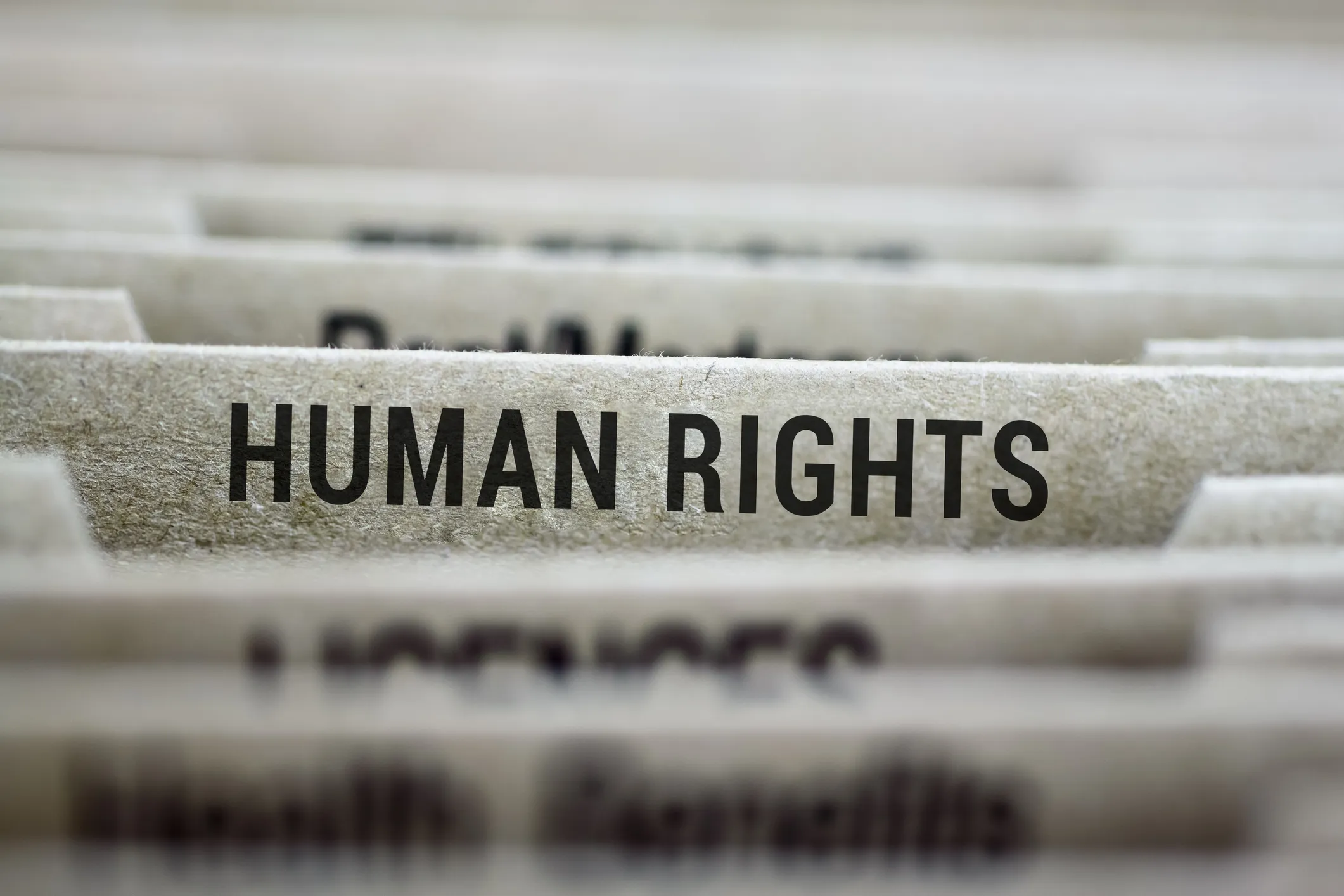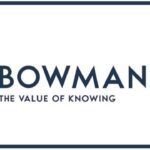By Hon. Prof. Kariuki Muigua, OGW, PhD, C.Arb, FCIArb is a Professor of Environmental Law and Dispute Resolution at the University of Nairobi, Member of Permanent Court of Arbitration, Leading Environmental Law Scholar, Respected Sustainable Development Policy Advisor, Top Natural Resources Lawyer, Highly-Regarded Dispute Resolution Expert and Awardee of the Order of Grand Warrior (OGW) of Kenya by H.E. the President of Republic of Kenya. He is the Academic Champion of ADR 2024, the African ADR Practitioner of the Year 2022, the African Arbitrator of the Year 2022, ADR Practitioner of the Year in Kenya 2021, CIArb (Kenya) Lifetime Achievement Award 2021 and ADR Publisher of the Year 2021 and Author of the Kenya’s First ESG Book: Embracing Environmental Social and Governance (ESG) tenets for Sustainable Development” (Glenwood, Nairobi, July 2023) and Kenya’s First Two Climate Change Law Book: Combating Climate Change for Sustainability (Glenwood, Nairobi, October 2023), Achieving Climate Justice for Development (Glenwood, Nairobi, October 2023), Promoting Rule of Law for Sustainable Development (Glenwood, Nairobi, January 2024) and Actualizing the Right to a Clean and Healthy Environment (Glenwood, Nairobi, January 2024)*
In order to integrate human rights within the ESG framework, there is need for corporations to embrace human rights due diligence. Human rights due diligence consists of a process that allows companies to identify, prevent and mitigate their actual and potential adverse impacts on human rights and account for how they address such impacts.
Human rights due diligence involves the actions taken by a company to both identify and act upon actual and potential human rights risks for workers in its operations, supply chains and the services it uses. Further, it has been defined as a process for identifying, preventing, mitigating and addressing human rights impacts, including both actual impacts occurring in the present and potential impacts that could occur in the future.
The United Nations Guiding Principles on Business and Human Rights provide that in order to meet their responsibility to respect human rights, business enterprises should have in place policies and processes appropriate to their size and circumstances, including a human rights due diligence process to identify, prevent, mitigate and account for how they address their impacts on human right.
Human rights due diligence has been advocated as a key measure for enterprises to proactively manage potential and actual adverse human rights impacts. It has been argued that the prevention of adverse impacts on people is the main purpose of human rights due diligence. The process not only identifies impacts a corporation directly causes, but also impacts it contributes to or is directly linked to through its business relationships, operations, products and services.
Further, it has been pointed out that engaging with stakeholders especially affected groups such as workers and communities is a key component of human rights due diligence. It is therefore necessary for companies to embrace human rights due diligence in order to effectively embrace human rights within their ESG framework. In order to effectively embrace human rights due diligence, companies should effectively identify and assess actual or potential adverse human rights impacts that they may cause or contribute to through their own activities, or which may be directly linked to their operations, products or services by their business relationships.
In addition, there is need for corporations to integrate findings from impact assessments across relevant company processes and take appropriate action according to their involvement in the impact. Further, it is imperative for companies to track the effectiveness of measures and processes adopted to address adverse human rights impacts in order to know if they are working and communicate on how impacts are being addressed and showing stakeholders – in particular affected stakeholders – that there are adequate policies and processes in place.
In order to be effective, human rights due diligence should take a conflict-sensitive approach which means that the process emphasizes effectively preventing, managing and addressing conflict, including by seeking to understand wider conflict dynamics and related risks in the operating environment especially in complex environments. Human rights due diligence is therefore vital in embedding human rights within the ESG agenda.
It has been suggested that human rights due diligence should be embraced by companies as an ongoing risk management process. It has been pointed out that companies can conduct effective human rights due diligence through several ways including through conducting a stand-alone human rights impact assessment or by integrating a thorough human rights evaluation into existing environmental and social impact assessment processes.
In addition, it has been suggested that human rights due diligence can both inform and be informed by the company’s other assessments and analyses such as risk assessments, situation analyses, needs assessments. Human rights due diligence is therefore a key idea that needs to be embraced in order entrench human rights within the ESG agenda.
In addition, at a continental level, several measures have been suggested towards embracing human rights in business operations towards fostering sustainable, responsible or ethical investments in the Continent. For example, it has been suggested that there is need to mainstream human rights into trade under the African Continental Free Trade Area (AfCFTA) and ensure that the implementation of the AfCFTA does not have an adverse effect on human rights.
Implementation of the AfCFTA is expected to boost Intra-African trade and investments some which could potentially have negative impacts on human rights in the Continent. Further, it has been suggested that there is need for the African Union to expedite the adoption of its Business and Human Rights Policy Framework (the AU Policy Framework on Business and Human Rights) which is designed to act as a roadmap for regulating the impact of business conduct on human rights in Africa and to encourage cohesive implementation of the United Nations Guiding Principles on Business and Human Rights by African states.
It has been pointed out that there is need for African countries to develop National Action Plans (NAPs) on Business and Human Rights in order to articulate their priorities, implementation strategies and commitments to human rights. African courts including the African Court on Human and Peoples’ Rights, regional courts such as the Common Market for Eastern and Southern Africa (COMESA) Court of Justice, the Court of Justice of the Economic Community of West African States (ECOWAS) along with other regional and national courts have a key role to play in shaping jurisprudence on Business and Human Rights in the Continent.
Finally, it is necessary to strengthen ESG reporting and enforcement mechanisms on human rights. It has been observed that recent ESG trends have driven the requirement by businesses to report on human rights as evidenced by emerging legal frameworks requiring companies to report on human rights and environmental issues, emerging mandatory human rights due diligence legislation, and increased legal enforcement and litigation risks.
Global, regional and national ESG frameworks including the United Nations Guiding Principles on Business and Human Rights, the European Union’s Corporate Sustainability Reporting Directive, and the Nairobi Securities Exchange (NSE) ESG Disclosures Guidance Manual require companies to report on their human rights standards on either voluntary or mandatory basis. Further, the United Nations (UN) Guiding Principles Reporting Framework offers a comprehensive guidance for companies to report on human rights issues in line with their responsibility to respect human rights.
It is important for companies to embrace the requirements on reporting in order to strengthen their approaches towards human rights. It is also vital to enhance enforcement of human rights in ESG through approaches such as public enforcement by the state and its agencies such as the capital markets and private enforcement through ESG litigation among other measures. Through the foregoing among other approaches, human rights will be firmly entrenched within the ESG agenda.
*This is an extract from Kenya’s First Clean and Healthy Environment Book: Actualizing the Right to a Clean and Healthy Environment (Glenwood, Nairobi, January 2024) by Hon. Prof. Kariuki Muigua, OGW, PhD, Professor of Environmental Law and Dispute Resolution, Senior Advocate of Kenya, Chartered Arbitrator, Kenya’s ADR Practitioner of the Year 2021 (Nairobi Legal Awards), ADR Lifetime Achievement Award 2021 (CIArb Kenya), African Arbitrator of the Year 2022, Africa ADR Practitioner of the Year 2022, Member of National Environment Tribunal (NET) Emeritus (2017 to 2023) and Member of Permanent Court of Arbitration nominated by Republic of Kenya and Academic Champion of ADR 2024. Prof. Kariuki Muigua is a foremost Environmental Law and Natural Resources Lawyer and Scholar, Sustainable Development Advocate and Conflict Management Expert in Kenya. Prof. Kariuki Muigua teaches Environmental Law and Dispute resolution at the University of Nairobi School of Law, The Center for Advanced Studies in Environmental Law and Policy (CASELAP) and Wangari Maathai Institute for Peace and Environmental Studies. He has published numerous books and articles on Environmental Law, Environmental Justice Conflict Management, Alternative Dispute Resolution and Sustainable Development. Prof. Muigua is also a Chartered Arbitrator, an Accredited Mediator, the Managing Partner of Kariuki Muigua & Co. Advocates and Africa Trustee Emeritus of the Chartered Institute of Arbitrators 2019-2022. Prof. Muigua is a 2023 recipient of President of the Republic of Kenya Order of Grand Warrior (OGW) Award for his service to the Nation as a Distinguished Expert, Academic and Scholar in Dispute Resolution and recognized among the top 5 leading lawyers and dispute resolution experts in Band 1 in Kenya by the Chambers Global Guide 2024 and was listed in the Inaugural THE LAWYER AFRICA Litigation Hall of Fame 2023 as one of the Top 50 Most Distinguished Litigation Lawyers in Kenya and the Top Arbitrator in Kenya in 2023.
References
African Commission on Human and Peoples’ Rights., ‘Resolution on Business and Human Rights in Africa’ -ACHPR/Res.550 (LXXIV), 2023.
African Union., ‘African Charter on Human and Peoples’ Rights.’ Available at https://au.int/sites/default/files/treaties/36390-treaty-0011_- _african_charter_on_human _and_peoples_rights_e.pdf (Accessed on 24/01/2024).
Ahmad. H., Yaqub. M., & Lee. S. H., ‘Environmental-, Social-, and GovernanceRelated Factors for Business Investment and Sustainability: A Scientometric Review of Global Trends.’ Available at https://link.springer.com/article/10.1007/s10668- 023-02921-x (Accessed on 23/01/2024).
Barbosa. A et al., ‘Integration of Environmental, Social, and Governance (ESG) Criteria: Their Impacts on Corporate Sustainability Performance.’ Humanit Soc Sci Commun 10, 410 (2023). Available at https://doi.org/10.1057/s41599-023-01919-0 (Accessed on 23/01/2024).
Boyle. A., ‘Human Rights and the Environment: Where Next’ The European Journal of International Law, Vol. 23, No. 3.
British Business Bank., ‘What is ESG – A Guide for Businesses.’ Available at https://www.british-business-bank.co.uk/finance-hub/businessguidance/sustainability/what-is-esg-a-guide-for-smaller-businesses/ (Accessed on 23/01/2024).
Business & Human Rights Resource Centre., ‘Commentary: Human Rights are not Just an ESG Factor’ Available at https://www.business-humanrights.org/en/latestnews/commentary-human-rights-are-not-just-an-esg-factor/ (Accessed on 24/01/2024).
Cedric.R., ‘Accountability of Multinational Corporations for Human Rights Abuses.” Utrecht Law Review 14.2 (2018): 1-5.’
Constitution of Kenya., 2010., Government Printer, Nairobi.
Ethical Trading Initiative., ‘Human Rights Due Diligence.’ Available at https://www.ethicaltrade.org/insights/issues/human-rights-due-diligence (Accessed on 25/01/2024).
Feldman. D., Mkhize. M., & Edmonds-Camara. H., ‘2023 African Forum on Business and Human Rights: What do companies need to know?.’ Available at https://www.globalpolicywatch.com/2023/09/2023-african-forum-on-businessand-human-rights-what-do-companies-need-to-know/ (Accessed on 25/01/2024).
Flacks. M., & Norman. H., ‘What Does the ESG Backlash Mean for Human Rights?’ Available at https://www.csis.org/analysis/what-does-esg-backlash-mean-humanrights (Accessed on 24/01/2024).
Geneva Centre for Security Sector Governance., ‘Human Rights Due Diligence.’ Available at https://www.securityhumanrightshub.org/toolkit/factsheets/humanrights-due-diligence.html (Accessed on 25/01/2024).
Global Campus of Human Rights., ‘Rethinking Environmental, Social, and Governance (ESG) Investing for Successful Sustainability and Human Rights.’ Available at https://gchumanrights.org/gc-preparedness/preparednessdevelopment/article-detail/rethinking-environmental-social-and-governance-esginvesting-for-successful-sustainability-and-human-rights-5039.html (Accessed on 24/01/2024)
Henisz. W, Koller. T, & Nuttall. R., ‘Five Ways that ESG Creates Value.’ McKinsey Quarterly, 2019
International Labour Organization., ‘Business and the Labour Dimension of Human Rights Due Diligence.’ Available at https://www.ilo.org/empent/areas/businesshelpdesk/WCMS_867782/lang–en/index.htm (Accessed on 24/01/2024).
International Labour Organization., ‘Declaration on Fundamental Principles and Rights at Work.’ Available at https://www.ilo.org/wcmsp5/groups/public/— ed_norm/—declaration/documents/normative instrument/wcms_716594.pdf (Accessed on 24/01/2024).
Kemp. B et al., ‘The Rise of ESG Litigation and Horizontal Human Rights Enforcement.’ Available at https://www.lexology.com/library/detail.aspx?g=07a94453-f2aa-490a-a7e1- f6c25256cbf9 (Accessed on 25/01/2024).
Khobe. W., ‘The Horizontal Application of the Bill of the Rights and the Development of the Law to give Effect to Rights and Fundamental Freedoms’ (2014) 1, Journal of Law and Ethics.
Mathis. S., ‘Environmental, Social and Governance (ESG).’ Available at https://www.techtarget.com/whatis/definition/environmental-social-andgovernance-ESG (Accessed on 23/01/2024).
Matu. D., ‘Improving Access to Justice in Kenya through Horizontal Application of the Bill of Rights and Judicial Review’ Available at https://press.strathmore.edu/uploads/journals/strathmore-lawreview/SLR2/2SLR1_Article_4.pdf (Accessed on 24/01/2024).
Mikhaeel. M., ‘How Human Rights Due Diligence Affects the ‘E’ in ESG.’ Available at https://www.financierworldwide.com/how-human-rights-due-diligence-affectsthe-e-in-esg (Accessed on 25/01/2024).
Munoz. P., ‘Bridging the Human Rights Gap in ESG.’ Available at https://www.bsr.org/en/blog/bridging-the-human-rights-gap-in-esg (Accessed on 24/01/2024).
Nairobi Securities Exchange., ‘ESG Disclosures Guidance Manual.’ Available at https://www.nse.co.ke/wp-content/uploads/NSE-ESG-Disclosures-GuidanceManual.pdf (Accessed on 24/01/2024).
Office of the High Commissioner for Human Rights., ‘Corporate Human Rights Due Diligence – Identifying and Leveraging Emerging Practices.’ Available at https://www.ohchr.org/en/special-procedures/wg-business/corporate-humanrights-due-diligence-identifying-and-leveraging-emergingpractices#:~:text= The%20prevention%20of%20adverse%20impacts,people%2C%20n ot%20risks%20to%20business (Accessed on 25/01/2024).
Office of the High Commissioner for Human Rights., ‘Investors, ESG and Human Rights.’ Available at https://www.ohchr.org/en/calls-for-input/2023/investorsesg-and-human-rights (Accessed on 23/01/2024).
Office of the High Commissioner for Human Rights., ‘Investors, ESG and Human Rights.’ Op Cit 89 Ibid 90 Rydzak. J., ‘ESG Data Needs a Human Rights Upgrade.’ Available at https://rankingdigitalrights.org/mini-report/esg-data-needs-a-human-rightsupgrade/#:~:text=ESG%20scores%20ignore%20human%20rights ,strive%20for%20et hical%20supply%20chains (Accessed on 25/01/2024).
Office of the High Commissioner for Human Rights., ‘What are Human Rights.’ Available at https://www.ohchr.org/en/what-are-human-rights (Accessed on 24/01/2024).
Organization for Economic Cooperation and Development (OECD)., ‘Guidelines for Multinational Enterprises on Responsible Business Conduct’ Available at https://www.mofa.go.jp/mofaj/files/100514804.pdf (Accessed on 24/01/2024)
Peterdy. K., & Miller. N., ‘What is ESG?’ Available at https://corporatefinanceinstitute.com/resources/esg/esg-environmental-socialgovernance/ (Accessed on 23/01/2024).
Simmons & Simmons., ‘Human Rights Due Diligence as Part of ‘Social’ in ESG.’ Available at https://www.simmonssimmons.com/en/publications/ckkce2jhz1nwg09857iumkfpb/human-rights-duediligence-as-part-of-social-in-esg (Accessed on 24/01/2024).
Stuart. L.G et al., ‘Firms and Social Responsibility: A Review of ESG and CSR Research in Corporate Finance.’ Journal of Corporate Finance 66 (2021): 101889 10 Li. T., et al., ‘ESG: Research Progress and Future Prospects.’ Available at https://pdfs.semanticscholar.org/0dd4/941ebea33330210daff5f37a1c8cdd0547d7.pd f (Accessed on 23/01/2024).
The Danish Institute for Human Rights., ‘Integrated Review and Reporting on SDGs and Human Rights.’ Available at https://sdghelpdesk.unescap.org/sites/default/files/2019- 07/integrated_review.pdf (Accessed on 24/01/2024).
The East African Centre for Human Rights., ‘A compendium on economic and social rights cases under the Constitution of Kenya, 2010’ available at https://eachrights.or.ke/wpcontent/uploads/2020/07/A_Compendium_On_Economic_And_Social_Rights_Cas es_Under_The_Constitution_Of_Kenya_2010.pdf (Accessed on 24/01/2024).
The Hague Rules on Business and Human Rights Arbitration., Available at https://www.cilc.nl/cms/wp-content/uploads/2019/12/The-Hague-Rules-onBusiness-and-HumanRights-Arbitration_CILC-digital-version.pdf (Accessed on 24/01/2024).
UN Guiding Principles Reporting Framework., Available at https://www.ungpreporting.org/wpcontent/uploads/UNGPReportingFramework_2017.pdf (Accessed on 25/01/2024).
United Nations General Assembly., ‘Transforming Our World: the 2030 Agenda for Sustainable Development.’ 21 October 2015, A/RES/70/1., Available at https://sustainabledevelopment.un.org/content/documents/21252030%20Agenda %20for%20Sustainabl e%20Development%20web.pdf (Accessed on 24/01/2024).
United Nations Guiding Principles on Business and Human Rights., Available at https://www.ohchr.org/sites/default/files/documents/publications/guidingprinc iplesbusinesshr_en.p df (Accessed on 24/01/2024).
United Nations Guiding Principles on Business and Human Rights., Op Cit 123 European Union’s Corporate Sustainability Reporting Directive., Available at https://eur-lex.europa.eu/legal-content/EN/TXT/?uri=CELEX:32022L2464 (Accessed on 25/01/2024).
United Nations, Charter of the United Nations, 24 October 1945, 1 UNTS XVI.
United Nations., ‘Human Rights.’ Available at https://www.un.org/en/globalissues/humanrights#:~:text=International%20Human%20Rights%20Law&text=The%20United%20 Nations%20has%20defined,in%20carrying%20out%20their%20responsibilities. (Accessed on 24/01/2024)
United Nations., ‘International Covenant on Civil and Political Rights.’ Available at https://treaties.un.org/doc/treaties/1976/03/19760323%2006- 17%20am/ch_iv_04.pdf (Accessed on 24/01/2024).
United Nations., ‘International Covenant on Economic, Social and Cultural Rights.’ Available at https://treaties.un.org/doc/treaties/1976/01/19760103%2009- 57%20pm/ch_iv_03.pdf (Accessed on 24/01/2024).
Universal Declaration of Human Rights., Available at https://www.un.org/sites/un2.un.org/files/2021/03/udhr.pdf (Accessed on 24/01/2024).





 Lawyers2 years ago
Lawyers2 years ago
 News & Analysis3 years ago
News & Analysis3 years ago
 News & Analysis3 years ago
News & Analysis3 years ago
 Lawyers2 years ago
Lawyers2 years ago
 News & Analysis3 years ago
News & Analysis3 years ago
 News & Analysis1 year ago
News & Analysis1 year ago
 News & Analysis3 years ago
News & Analysis3 years ago
 News & Analysis1 year ago
News & Analysis1 year ago




























